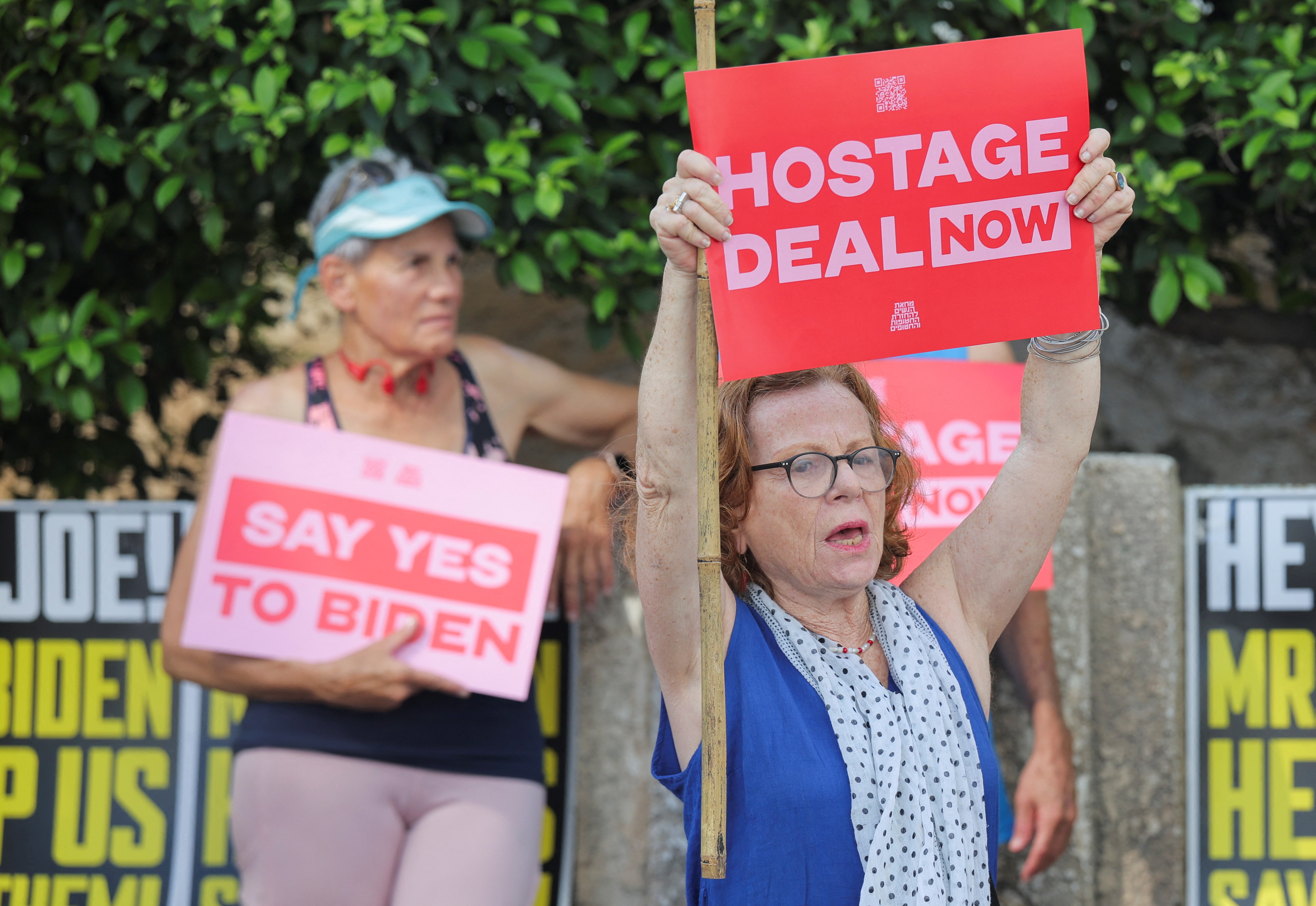Hamas accepts a U.N. resolution backing a plan to end the war with Israel in Gaza and is ready to negotiate details, a senior official of the Palestinian militant group said on Tuesday in what the U.S. Secretary of State called “a hopeful sign”.
Conversations on plans for Gaza after the Israel-Hamas war ends will continue on Tuesday afternoon and in the next couple of days, Secretary of State Antony Blinken said in Tel Aviv after talks with Israeli leaders. “It’s imperative that we have these plans.”
Blinken met Israeli officials on Tuesday in a push to end the eight-month-old Israeli air and ground war against Hamas that has devastated Gaza, a day after President Joe Biden’s proposal for a truce was approved by the U.N. Security Council.
Ahead of Blinken’s trip, Israel and Hamas both repeated hardline positions that have undermined previous mediation to end the fighting, while Israel has pressed on with assaults in central and southern Gaza, among the bloodiest of the war.
On Tuesday, however, senior Hamas official Sami Abu Zuhri, who is based outside Gaza, said it accepted the ceasefire resolution and was ready to negotiate over the details. It was up to Washington to ensure that Israel abides by it, he added.
He said Hamas accepted the formula stipulating the withdrawal of Israeli troops from Gaza and a swap of hostages held in Gaza for Palestinian prisoners jailed in Israel.
“The U.S. administration is facing a real test to carry out its commitments in compelling the occupation to immediately end the war in an implementation of the U.N. Security Council resolution,” Abu Zuhri told Reuters.
Blinken said the Hamas statement was “a hopeful sign” but definitive word was still needed from the Hamas leadership inside Israeli-besieged Gaza. “That’s what counts, and that’s what we don’t have yet.”
The war began when Hamas-led Palestinian militants stormed into southern Israel from Gaza on Oct. 7, killing more than 1,200 people and seizing more than 250 as hostages, according to Israeli tallies.
Israel’s retaliatory air and ground blitz in Gaza has killed more than 37,000 Palestinians, the Gaza health ministry has said, and reduced most of the narrow, coastal enclave to wasteland, with malnutrition widespread.
Biden’s proposal envisages a ceasefire and release of hostages in exchange for Palestinians jailed in Israel in stages, ultimately leading to a permanent end to the war.
Israel has said it will agree only to temporary pauses in the war until Hamas is defeated, while Hamas has countered it will not accept a deal that does not guarantee the war will end.
Blinken, speaking to reporters before departing for neighbouring Jordan, also said his talks were also addressing day-after plans for Gaza, including security, governance, and rebuilding the densely populated enclave.
“We’ve been doing that in consultation with many partners throughout the region. Those conversations will continue…it’s imperative that we have these plans,” he said.
In the Gaza Strip on Tuesday, Palestinians reacted cautiously to the Security Council vote, fearing it could prove yet another ceasefire initiative that would prove fruitless.
“We will believe it only when we see it,” said Shaban Abdel-Raouf, 47, a displaced family of five sheltering in the central city of Deir Al-Balah, a frequent target of Israeli firepower.
“When they tell us to pack our belongings and prepare to go back to Gaza City, we will know it is true,” he told Reuters via a chat app.
FEARS OF MAJOR ISRAEL-HEZBOLLAH WAR
In his visit, his eighth to the Middle East since the Israel-Hamas war erupted last October, Blinken also hoped to counter rising violence between Israel and Lebanon’s Hezbollah after both signalled readiness for a major spillover conflict.
On Monday, Blinken had talks in Cairo with President Abdel Fattah al-Sisi of Egypt, an important mediator in the Gaza war, in Cairo before proceeding to Israel, where he met with Primem Minister Benjamin Netanyahu and Defence Minister Yoav Gallant.
Blinken had consultations on Tuesday with Israeli President Isaac Herzog, centrist ex-military chief Benny Gantz – who quit Israel’s war cabinet on Sunday over what he said was Netanyahu’s failure to outline a plan for the war’s end – as well as opposition leader Yair Lapid.
The U.S. State Department said Blinken discussed Biden’s truce proposal with Gantz and reiterated that it would advance Israel’s security interests, bring hostages home and raise the chances of restoring calm along Israel’s border with Lebanon.
The U.S. is Israel’s closest ally and biggest arms supplier, though it has become sharply critical of the high civilian death toll, vast destruction and the humanitarian crisis in Gaza caused by the Israeli military campaign.
The war raged on in Gaza on Tuesday as Israeli forces stepped up strikes on its southern city of Rafah a day after four soldiers were killed in an ambush claimed by Hamas.
Israeli Army Radio said the soldiers died in an explosion in a building in Rafah’s Shaboura district. Hamas said it had ambushed troops by detonating explosives planted in the building.
HOPES FOR CEASEFIRE REPEATEDLY DASHED
Biden has repeatedly declared that ceasefires were close over the past several months, but there has been only one, week-long truce, in November, when over 100 hostages were freed in exchange for about 240 Palestinians held in Israeli jails.
Israeli forces rescued four hostages held by Hamas in a commando raid into a crowded urban refugee camp in central Gaza on Saturday during which 274 Palestinians were killed by Israeli bombardments, according to Gaza’s health authorities.
There are over 100 hostages left in the coastal enclave, according to Israeli tallies, including at least 40 whom Israeli authorities have declared dead in absentia.






Click here to change your cookie preferences